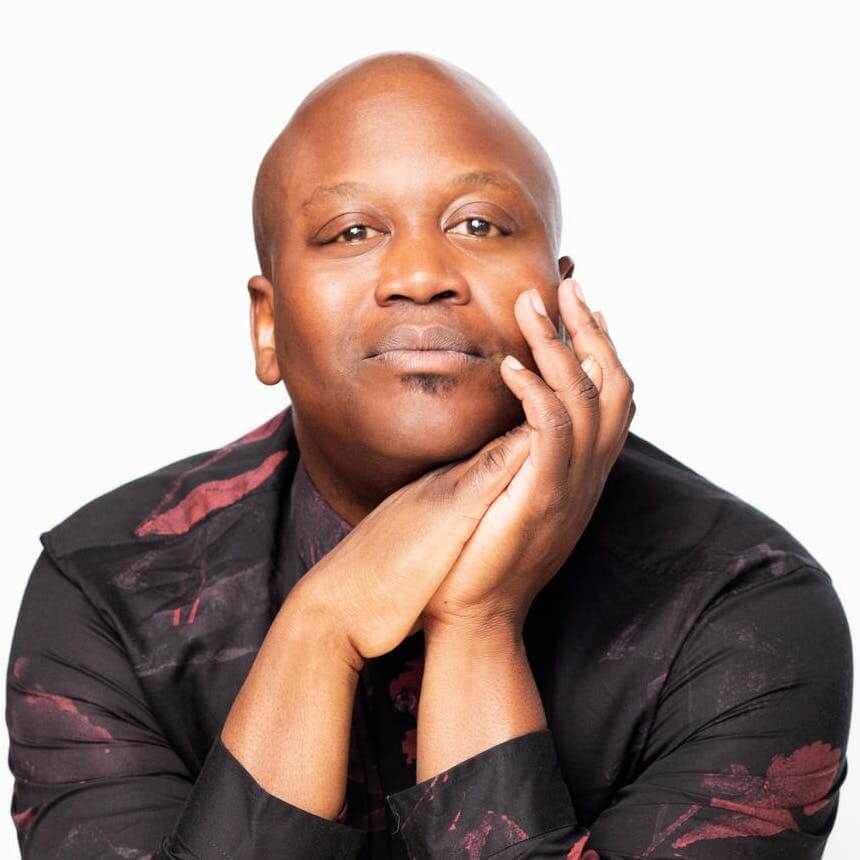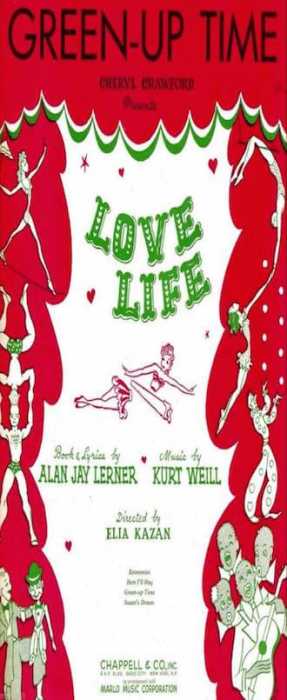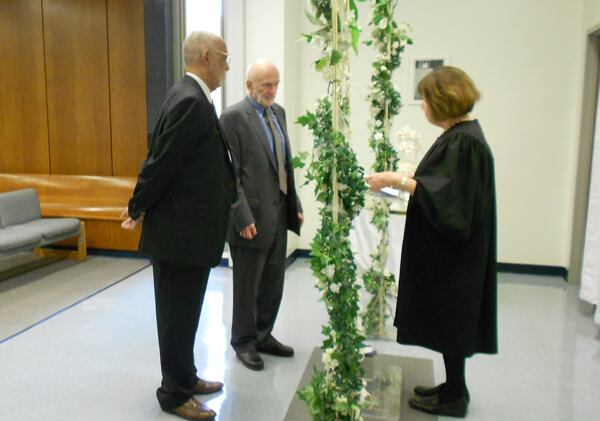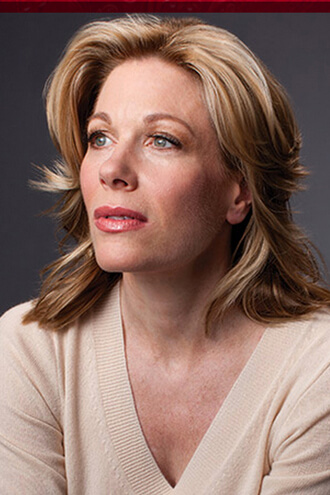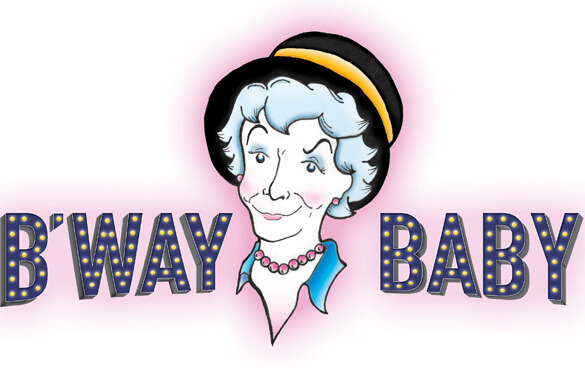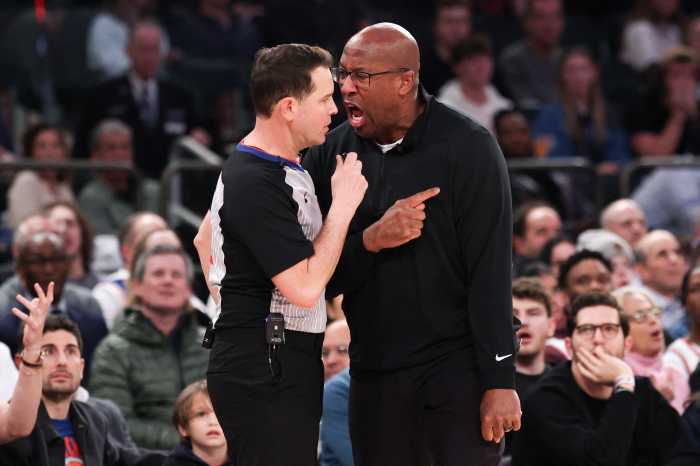February 1 was a truly legendary evening at Carnegie Hall, which, to any card-carrying homo — of a certain age, at least — automatically evokes beloved gay Saint Judy Garland’s fabled performance there in 1961, what many referred to as the “greatest night of showbiz.” And now, nearly 60 years later, Tituss Burgess stepped up to present “Take Me to the World,” a celebration of the man he reveres above all — Stephen Sondheim — with a roster consisting solely songs of he composed.
There was a frisson in the air, special to any event in which the Broadway musical stakes are particularly high, when the voice of everyone in the crowd seems to be an octave higher, abuzz with excitement and insider chatter, all eyes peering about to see “Who’s here?” In that stately hall, the hysteria at Burgess’ resplendent white-garbed entrance showed just how very much he is loved and admired by the theater cum gay community that seemed to have turned out in its entirety.
I have always said his voice is one of the wonders of the world — on a Luther Vandross/ Aretha / kd lang level — and since his range is so insane, let’s throw in some operatic greats like Tebaldi and Pavarotti, and also, of course, Judy. It had been a few years since I’ve heard him live, so that sound — which I never realized had so many quite lovely Johnny Mathis colors to it — was like a familiar but always exciting friend you never get to see enough of. The memorable standouts of the evening included a swooningly effective R&B arrangement for the winsome “Anyone Can Whistle” that could be a humongously popular single release. The “Company” title song sequence — with a super game chorus I think may have been culled from Burgess’ beloved Lower East Side congregation, Middle Collegiate Church — absolutely rocked, pure dynamite.
I was surprised Burgess didn’t the song he was born for from that show, “Being Alive” on which he could put as strong a personal stamp as only Judy Kaye has ever been able to do for me. Indeed, the concert eschewed many of the composer’s crowd-pleasing big anthems: “Not a Day Goes By,” “Losing My Mind,” “Leave You?,” “Broadway Baby,” “Johanna,” “There Won’t Be Trumpets” “Rose’s Turn” and — thank God — that clown song I never want to hear again. Ever.
The show had terrific direction and conducting by Gabriel Vega Weissman and Charlie Rosen, respectively. And there were special guests, who were generously all given solo moments in which to shine: Michael McElroy, Jane Krakowski, still working sexy into the ground, and the powerfully-voiced Orfeh, but Lillias White took the crown, spiritedly funking up “Everything’s Coming Up Roses,” which made me wonder why an all-Black “Gypsy” has never been done. The three ladies also delivered Sondheim’s funniest showstopper, “Gotta Get a Gimmick,” and baby, when La White bumps and grinds, she really bumps and grinds.
Very late into the concert, Burgess described growing up in the Deep South, where he worked the fields and where, in church, his precocious talent was first recognized. On a rainy day, he found himself watching the family TV, which had only one station, PBS, which was showing the filmed stage Broadway production of “Sunday Park in the George.”
“I didn’t know what it was about,” he recalled, but he sure felt it, and cites Sondheim as a major influence, forever. I do hope the composer was in the house that night, if only to be reminded again of his own genius, and witness his work interpreted in a myriad of fresh and exciting ways by a unique artist at the very peak of his craft.
On January 31, I caught Christine Andreas’ cabaret “And So It Goes… Life & Love, Lost& Found” at Feinstein’s/ 54 Below. I always appreciate the meticulous care Andreas takes in curating a show, having marvelously eclectic song taste, not to mention her evergreen soprano voice, which, while retaining its tonal lushness, has also attained a harder edge, all the better for the dramatic stuff she tends toward. Music and open expressions of love to all around us, she opined, was the best way to handle the ever-growing toxic virus that besieges us daily from the Oval Office. She gave the van Heusen/ Burke torch classic “Here’s That Rainy Day” a particularly sensitive reading. Andreas’ focus and unwavering commitment to all she does made me actually enjoy her refulgent warbling on a song that I always found so damn treacly — “What a Wonderful World.”
After all that music and delightfully running into Andreas’ fellow diva, Melissa Errico, come to pay her homage, we took it to the McKittrick Hotel, at the special behest of nightlife doyenne and AIDS hero — for all the money her benefit projects like Love Ball have raised — Susanne Bartsch, to see her long-running Friday night show, “The Bartschland Follies.” This most darling of divas really rolled out the fuchsia carpet for us, treating us to an uber-cool VIP cocktail party before seating us at the best table for the show, a raucously fun X-rated modern burlesque revue featuring both veteran and millennial talent of the most extravagantly creative stripe.
It was great to see, along with all the jaw-droppingly agile pole dancers, avant-garde Russian porn stars turned foodie ecdysiasts, and buff, tatted trade, such evergreen downtown icons like Joey Arias, Shequida, Murray Hill, and the lovable Dirty Martini still at it, after decades, and still exuberantly inspirational.
The crowd was the usual, precious Bartschian mix of only-in-Noo-Yawk wildly caparisoned characters, glamour gals and the boyz who love them and vice versa, and the wealthy, doing I suppose what they would think of as slumming. Fair warning to anyone straight and nubile or hedge fund types perhaps dragged there by trophy wives and their claque of gays: you will be heavily targeted by the onstage squad of gender illusionists, especially Joey, Shequida, and my hostess herself, who wore a magnificently wrought half female/ male get-up that I dubbed “Sue-Man Bartsch.” You will be invited/ dragged onstage, definitely stripped of your shirt, at the very least, and what you will undergo could fairly be described as #MeToo—AndThenSome. You will realize that, along with giving of themselves to their art, some of the performers have definite side hobbies, like avid practice on the skin flute. The night we were there, La Arias rather grabbed a personal onstage moment for herself, with a hapless, six-packed and tatted dog walker, centering around his crotch. It went on for a small eternity, with me wishing someone would yell, “Yo, queen, remember: you are dressed as and supposed to be channeling Billie Holliday, not Joey Arias!”
Though the beautifully romantic Guatemalan film “José” has ended its run at the Quad, it’s a film to look out for on the streaming services. I had the chance to meet its Chinese-born director, Li Cheng, who won the Venice Film Festival’s Queer Lion Award for this, his second feature, at a New York Times event sponsored by the newspaper’s LGBTQ and Asian employee affinity groups.
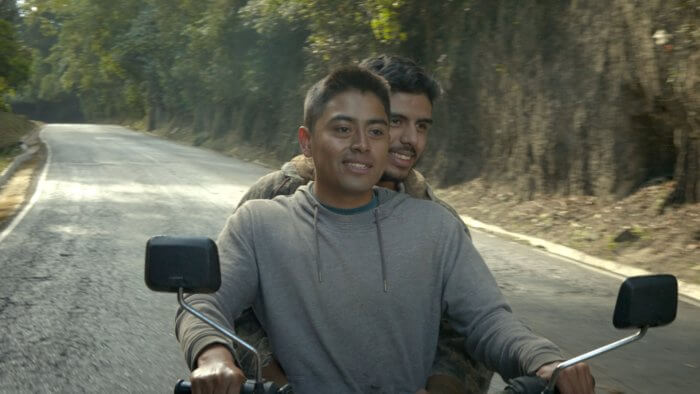
The handsome, down-to-earth and whip-smart out gay director came to the US to study cancer research at Rutgers but quit to become a filmmaker, learning the craft in a four-week training session offered by the New York Film Academy on Union Square.
Cheng talked about US immigration officials blocking Enrique Salanic, the film’s gifted and out gay lead and the only professional actor in his cast, from entering the US from Guatemala for the film’s opening.
Manolo Herrera, who is straight, plays Salanic’s lover, and the filmmaker said the two men had to work to get their characters in appropriate synch. In time, however, things smoothed out, resulting in a rapturously romantic motorcycle ride during which Li fully captures the never-gets-old ecstasy of new love blossoming. The numerous sensual love scenes, featuring copious frontal nudity, never feel gratuitous, just very natural. Unlike many directors, gay and otherwise, Li has no problem with sensuality and was never going to make an antiseptic capon of a movie like “The Broken Hearts Club League,” “In & Out,” or, gay gods forgive me, “Brokeback Mountain.”
“I guess I came out after I graduated here, and while it’s always difficult, and maybe more so for Asians families, my parents — neither of whom went to college — accepted me, and my sister was very supportive, aside from asking, ‘What took you so long?,’” Li recalled. “So I think things are changing in China and Taiwan, which now allows gay marriage, and India where it is no longer illegal to be gay.”
Li, a truly nomadic artist, who lived in Guatemala before making his film, doesn’t know where his next one will be set, maybe India or São Paulo.
“I go where the story is, just chill, and talk to people and once I get inspired, I start to write, then I organize my cast and crew and get going,” the filmmaker explained. “It will always be a new group, but I’m thinking some may be the same this time, like my wonderful cinematographer, Paolo Giron.”
Were he ever to set down more permanent roots, Vancouver could be an option, Li said.
“I lived in New York for about four years, going to school, but I really don’t like the gay culture here, which is why I decided to leave,” he explained.
Li has reservations about the conformity and white privilege that too often dominate in the LGBTQ community.
“Doing about 20 of the 100 festivals I am taking my film to, we see so many… okay another muscled upper or middle class macho-looking white guy with his similar partner all over these festivals, so not attractive, so boring,” he said. “In Canada, you see Asians who are far more integrated into the culture and many mixed coupes, Asian-black, etc.”
Li himself is single but said, “My producer is really my partner, although not in a romantic sense. We live together because we work together — he’s gay, too, but more like family. It’s kind of nice because it’s difficult to find people you really want to hang out with on social apps.”

